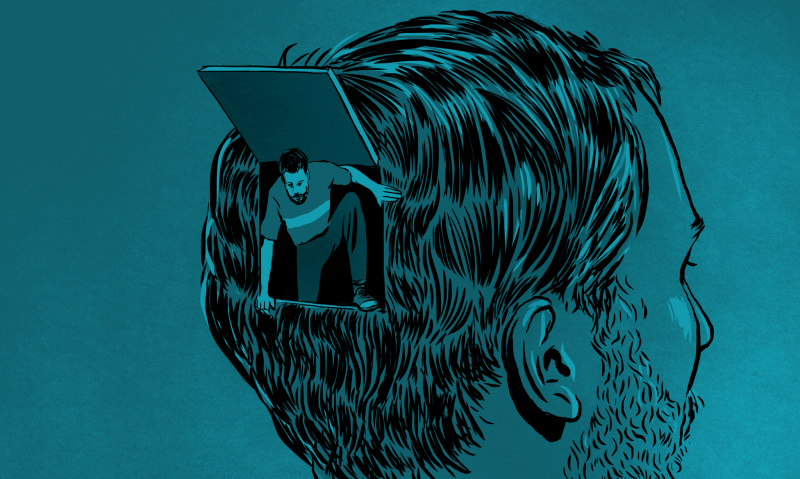
Why Escapism can be Harmful
-
Therapist Lyn Reed explores escapism – is it harmful, or can it be a helpful coping strategy?
-
If you engage with escapism in a way that is unhelpful to your mental health – find a therapist here
Ever wanted to be somebody else? Who hasn’t? And it’s fine when we have positive role models and emulate them to achieve similar results. But when we want to be somebody else. That’s different. This desire is a form of escapism.
I would argue this escapism is an unhealthy way of coping with the challenges in our lives. With the stresses of modern life, escapism is pervasive. It comes in many forms and prevents us from doing what we want to do to improve the circumstances in our real everyday lives.
The ultimate goal of escapism is the destruction of self
When we have an aspect of our lives which we want to escape from, with enough repetition we come to view ourselves as a totally separate entity from the one that had negative traits or circumstances. This partial destruction of self and dissociation are common.
When we escape we may be trying to avoid spending time with ourselves. Escapism can be the opposite of mindfulness. Escapism allows us to numb ourselves to a reality we may not want to accept. This way we can avoid feelings of emotional pain.
Ultimately we are responsible for the decisions we take. Sooner or later we have to return to reality. Studies have suggested those who use escapism are often depressed. It seems if we don’t deal with our issues, and we avoid them we could be at risk of developing a higher level of depressive symptoms.
Addiction to the internet has shown overuse of such is often linked to loneliness and compulsiveness. Such addicts tend to use online services such as gaming and forums to compensate for their lack of interpersonal interaction in reality. (Whereas non-addicts seek out face-to- face interactions in response to sadness.)
Just as importantly, if not more so, habitual escapism risks alienating us from friends, family and others. Social interaction has been shown, time and time again, to be one of the key factors to overcoming isolation.
The more time we spend in a fantasy world, the less energy we have to do anything about our real lives. The object of our fantasy, whatever it is, numbs our feelings, becomes addictive and highly self-reinforcing – spending time in fantasy land is not attractive.
So, how do we get back to reality?
- Firstly, we need to find out what/who we are trying to escape from
- In what situations do we find ourselves trying to escape?
- If there a mood which triggers it?
- How do we feel when we ‘return’ from our fantasy?
Often we escape because we feel shame. We feel fear. We feel we have failed.
Self-acceptance and gratitude helps in the long term; for now try putting some changes into place. Give yourself a break from social media for a while or bring yourself back to the now. Meditation, writing, painting – all can help.
Not all escapism is bad for you. It is important to identify why you need to escape. If you are running away from reality then the consequences are not likely to be good. But if you are accessing another world in order to gain some insights to bring you back to this one – well, that IS good.










